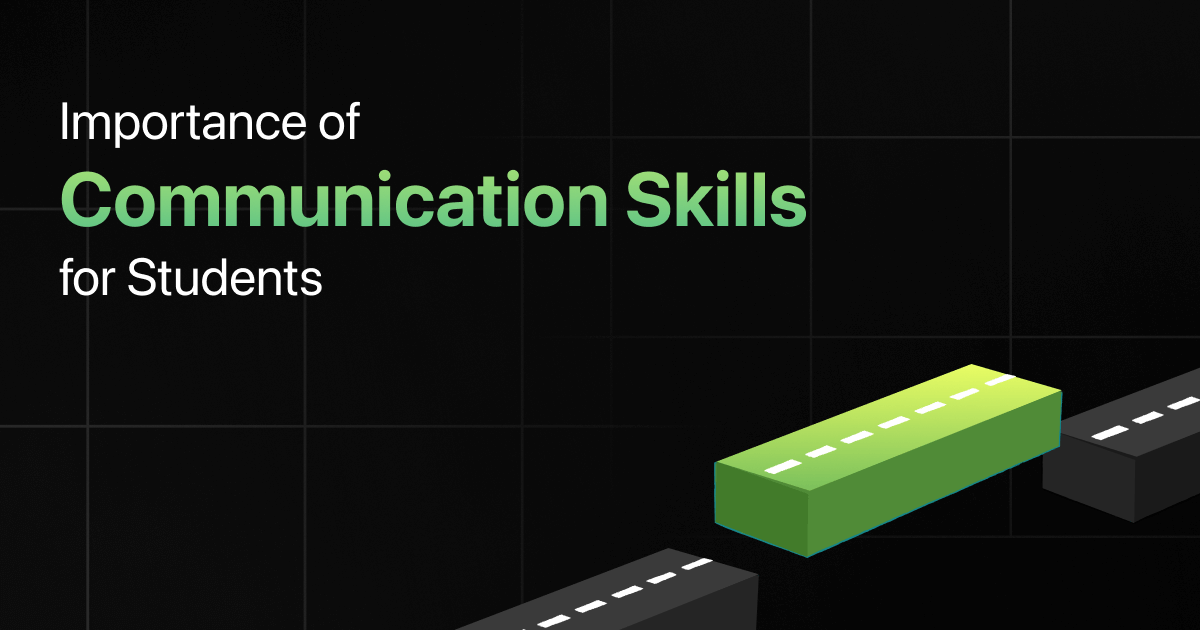Are you aware of how important communication skills are in both a student’s academic and personal life?
The use of effective communication skills in a student’s life can’t be counted on finger tips . While mastering all kinds of communication is not only necessary for their personal well-being, it is also crucial in accomplishing their academic and professional pursuits by helping them flourish in their future jobs.
Today, we will look at the importance of communication skills for students and how it can impact their overall growth and development.
Importance of Communication Skills for College Students
The following are the importance of communication skills for college students:
1. Enhances Academic Performance
Excellent communication skills are critical for academic success since they are involved in all aspects of a student’s academic journey.
Strong communication skills are required to transmit thoughts and ideas effectively and coherently, whether engaging in class discussions or presenting presentations.
Students with great communication skills can participate in important discussions, ask important questions, and communicate their viewpoints clearly in the classroom. They can readily comprehend and follow directions, actively participate in group tasks, and collaborate with their peers.
Furthermore, children with strong communication skills are better able to absorb complicated subject matter and effectively convey their understanding to their professors and peers.
2. Improves Career Prospects
One of the most major advantages of having great communication skills for students is improved career prospects. Employers in today’s competitive employment market need employees who can successfully interact with clients, coworkers, and stakeholders.
Students with strong communication skills can differentiate themselves from their peers and have a better chance of finding their dream job.
Communication skills are required for careers in education, law, journalism, and a variety of other disciplines. Students who can successfully improve communication skills can develop their professions, create a strong network, and accomplish their career goals.
For example, in the healthcare professions, excellent communication is critical for patient care. To deliver quality care, doctors, nurses, and other healthcare workers must interact with patients, families, and other healthcare providers.
3. Encourages Effective Collaboration
Collaboration is critical to success in both academic and professional settings. Communication skills are crucial in developing successful student collaboration.
Students who can communicate clearly and effectively with their classmates and instructors can work effortlessly together, exchange ideas, and achieve common goals.
Students must interact efficiently with their teammates to thrive in extracurricular activities such as debates, theatre, and athletics.
For example, in a sports team, each member must communicate their roles and duties, tactics, and progress in order to win. Similarly, each team member in a debate tournament must successfully express their ideas and points of view to the audience and judges.
4. Fosters Leadership Qualities
A great leader must be able to clearly and clearly communicate their vision, ideas, and objectives to their team. This not only helps them win the confidence and respect of their team, but it also drives them to work together to achieve a common goal.
Students with great communication skills have a better chance of becoming effective leaders in the future.
Imagine a student is a president of a student council or the leader of a project group. In that scenario, they must successfully convey their ideas and plans to their team members. They can guarantee that their team is all on the same page and working towards the same objective by doing so.
And, if any issues arise, they need to be able to address them promptly and resolve them through effective communication.
5. Facilitates Conflict Resolution
Conflict is a natural part of human interaction, and it is unavoidable. When conflicts are not handled properly, they can have negative implications such as strained relationships, stress, and reduced productivity.
Communication skills are essential for conflict resolution because they allow students to communicate their viewpoints, understand the perspectives of others, and establish mutual understanding.
Imagine a group project in which there are conflicts among team members. Children with good communication skills can successfully explain their points of view, listen to others, and collaborate to achieve a common objective. They can pinpoint the source of the conflict and devise an agreement that works for everyone.








